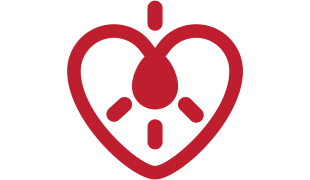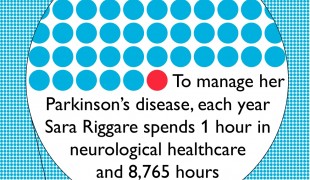- 10868
- 729
- 13
- 7
- 0
- Help Ukraine
About the solution
“I want to make something clear. I did not arrive at this solution to urinary incontinence over night. It took years.
Once we finally developed the solution, it still took many months before it started to work effectively. Here is some good news. The solution becomes more and more effective over time. My solution is not perfect. It does not work every single day. It does not work every single night. I can say this with some confidence - we no longer experience the flood”, said the caregiver.
Bob had to do a lot of trial and error before we could develop this solution.
Here are some notes from this solution’s author:
“Every time we had an accident I wrote down the time and what happened. Big flood, little puddle, couple of drops. Floor shot, panty shot, pants shot. Number one, number one and number two (yeah, I had to work on the poop problem separately).
Soon I could see a clear cut pattern. Once I had the pattern identified problem solved right?
Nope.
The problem is not urinary incontinence the problem is - How to get my mother to pee 8-10 times a day.
Here are my tools: coffee, potato chips, Cheese ITS, mounds, breakfast, lunch, dinner, ice cream and scratch offs (lottery tickets).
I also use my forehead (touch) for constant positive reinforcement and good communication.
If I miss this scheduled pee pee pit stop by more than 30 minutes its gonna be the yellow river.
This is when I use one of the following: potato chips, Cheez Its, or whatever we have that will make mom's mouth water like one of Pavlov's dogs.
By now you are should be getting an understanding of the program. Every pee gets followed by the positive reinforcement. Every pee leads to something good.
I did discover that by looking beyond the obvious you could accomplish goals by establishing new consistent patterns of behavior 9a routine so to speak. This is where the teaching comes in to play.
Please Note: not one drop of pee pee on the bed in over a year. Special note: this statistic grew to be many years believe it or not.
I'll close by saying this. I learn the same thing every time - it is the simplest, most obvious solution that works best when you are having a problem with someone that is living with Alzheimer's disease”.
More info: http://bit.ly/2nLBB1e
Adapted from: http://bit.ly/2pajQK3
This solution shall not include mention to the use of drugs, chemicals or biologicals (including food); invasive devices; offensive, commercial or inherently dangerous content. This solution was not medically validated. Proceed with caution! If you have any doubts, please consult with a health professional.
DISCLAIMER: This story was written by someone who is not the author of the solution, therefore please be advised that, although it was written with the utmost respect for the innovation and the innovator, there can be some incorrect statements. If you find any errors please contact the patient Innovation team via info@patient-innovation.com
-
-
294
-
0
-
3516

Richard Hanbury creates Sana Relief - a device to recovery from fatigue.
CAREGIVING
SLEEP FUNCTION: Resting
Neuromuscular Disorders
5 Senses support devices: (glasses, hearing aids, headphones...)
App (Including when connected with wearable)
Managing pain
Enhancing health literacy
Promoting self-management
Managing Neurological Disorders
Recovering from Traumatic Injuries
Enhancing Mental Health
Preventing (Vaccination, Protection, Falls, Research/Mapping)
Raise awareness
Caregiving Support
Child and Adolescent Psychiatry
General and Family Medicine
Neurology
Pediatrics
Physical Medicine and Rehabilitation
Psychiatry
United States
-
-
-
589
-
0
-
7813

Slacks with zippers on both sides for patients who have to stand up in public
CAREGIVING
(SELF)-CARE: DRESSING: Dressing independently.
Amyotrophic Lateral Sclerosis
Strategy/Tip
Body-Worn solutions (Clothing, accessories, shoes, sensors...)
Tremors
Muscle cramps or spasms
Stiffness or rigidity (difficulty moving)
Muscle weakness
Trouble with fine motor skills (e.g., writing, buttoning clothes)
Sleep disturbances
Numbness or tingling in the extremities
Restoring mobility
Managing pain
Promoting self-management
Managing Neurological Disorders
Promoting inclusivity and social integration
Preventing (Vaccination, Protection, Falls, Research/Mapping)
Caregiving Support
General and Family Medicine
Medical Genetics
Medical Oncology
Neurology
Orthopedics
Physical Medicine and Rehabilitation
Rheumatology
United States
-
-
-
224
-
0
-
2317

The self-tracking patient: Sara Riggare’s case study in Parkinson's Disease
CAREGIVING
Parkinson's Disease
Strategy/Tip
App (Including when connected with wearable)
Impaired movement
Tremors
Trouble with fine motor skills (e.g., writing, buttoning clothes)
Enhancing health literacy
Promoting self-management
To implement medical examination
Managing Neurological Disorders
Caregiving Support
Neurology
Physical Medicine and Rehabilitation
Sweden
-
 en
en